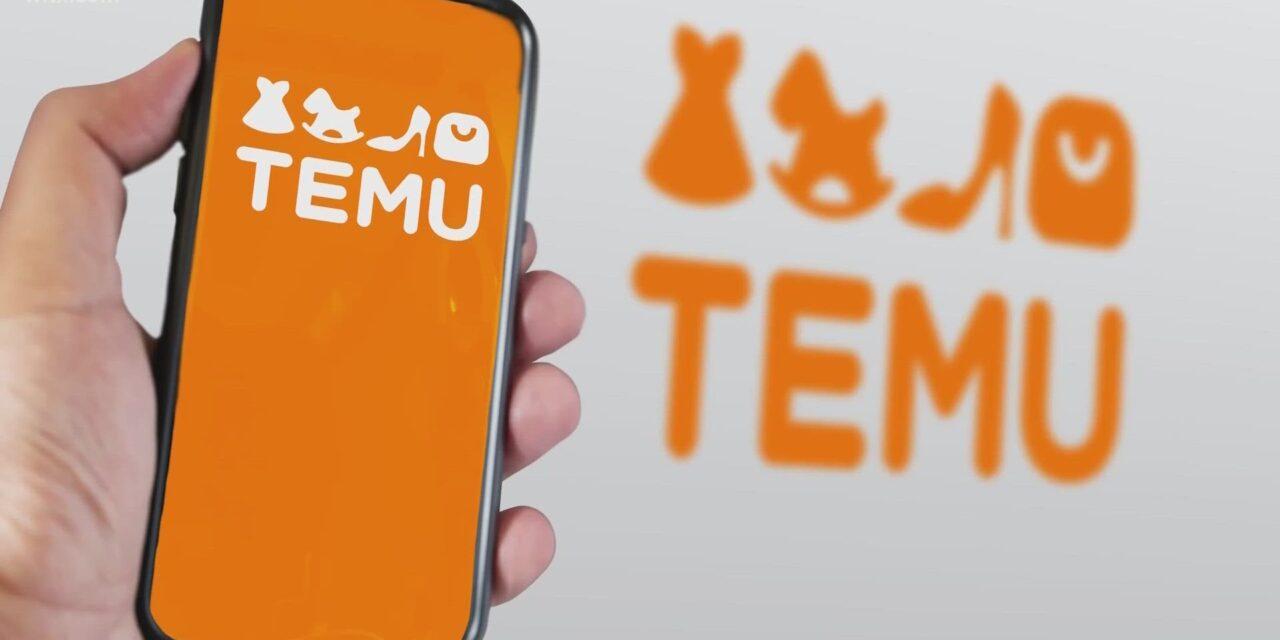In addition to Temu's low prices, it has become a competitor of domestic companies with its aggressive marketing strategy.
Temu is an online marketplace that sells a variety of everyday products, including clothes, toys, and household items, at extremely low prices. The interface was launched by Shanghai-based PDD Holdings late last year (initially in the United States).
Since then, Temu has soared in popularity.
The total value of the products sold increased from 3 million dollars in September 2022 to 15.1 billion dollars in 2023.
This is the secret of success
The platform has some effective strategies that keep consumers coming back again and again.
Value
For a long time, products labeled "made in China" were associated with cheap but low-quality goods. However, in the case of Temu, consumers believe that they do not necessarily have to compromise on quality in exchange for a low price.
The company claims that they can sell their products so cheaply because they cut out middlemen from the supply chain. While the manufacturers provide the goods, Temu takes care of everything else - from customs clearance to international shipping. And this helps to reduce costs.
However, the goods are really so cheap that there is a suspicion that Temu and its suppliers are operating at a loss. However, it is common for startups to experience negative cash flow in the early years due to large marketing investments.
This is especially true in fast-paced e-commerce, where success and failure come in quick succession. Temu and its suppliers are likely aware of this dynamic.
Effective marketing strategy
Temu takes a unique approach to e-commerce by focusing not only on functional benefits such as saving money, but also on the emotional needs of consumers. Customers get a sense of luxury, even if they buy at a discounted price. This approach allows Temu to attract not only price-sensitive consumers, but also those who enjoy the shopping experience and seek a sense of exclusivity. The platform often uses marketing campaigns, promotions, and also distributes gifts to further strengthen this feeling among consumers.
Right timing
The company emerged amid global inflation that has prompted consumers to rein in their spending. In the first month after the launch of the platform in the US, Temu invested about 200 million dollars in advertising and planned a budget of 2 billion for the year. In addition, he recruited influencers for his ads to instill even more confidence in customers.
Promotional tactics
Although Temu uses general sales tactics known from other e-commerce platforms, it uses a lot of them at the same time. Here are some examples:
• Gamified experiences: gamified advertising is based on two central elements: challenge and reward. Temu's wheel of fortune offers very promising discounts, thus evoking positive emotions in consumers.
• Flash and limited-time offers: one of the often used promotional tactics is that an action lasts only for a certain time and, according to the company's communication, there are only a few of them left. This terrifies consumers, as they have to make a quick decision or miss out on some good offer.
• Discounts and free shipping: offering simple price cuts and very good prices is a time-honored way of securing a loyal customer base. In addition, Temu offers free shipping on orders with a very low minimum spend.
• Loyalty program: consumers can subscribe to the company's marketing e-mails, in return they receive more promotional content, including those sent exclusively by e-mail. E-commerce companies often have access to our personal information (such as name, address, age, and phone number), as well as information from our search history and online sessions. Based on these, the company can bombard customers with unique offers.
• Prioritization in the search engine: when we search for a product in, for example, the Google search engine, temus products are often listed first.
It encourages overconsumption
Temu is a bit like Russian roulette: you either get a good quality product or you don't, but for that much money it's worth the risk. However, it is not difficult to avoid shoddy goods, as the platform prioritizes the best-selling products, so overall, it is likely that more good than bad quality will be purchased in each order. And the 90-day free return option only increases confidence. However, this strategy is also harmful, as users may be more prone to overconsumption – which can lead to waste and more pollution.
In addition, data centers form the backbone of e-commerce platforms like Temu, which are huge energy-guzzling systems, most of which use non-renewable resources, which further increases the risk of global warming. The company sends more than one million packages to different parts of the world every day, which results in a significant amount of waste. Online shopping produces 4.8 times more packaging waste.
Is he hiding something?
Temu does not share information about its labor practices, so there is no way to know whether the workers employed by its suppliers are treated fairly and paid properly. However, it can be suspected that the price of a few hundred HUF clothing items is not enough to cover the wages of the garment workers who make them.
The brand says it prohibits forced labour, but there is no explanation of how it verifies this with its thousands of suppliers. Last May, a US congressional committee wrote to request information on whether Temu was complying with US anti-forced labor laws after an investigation found that the company's business model allowed it to avoid complying with US regulations banning imports from China's Xinjiang region. , where there is a significant risk of human rights violations. The report noted that the company did not have control processes in place to assess this risk.
Displaces domestic traders
Olcsóbbat.hu's survey shows that domestic e-retailers are also feeling the appearance of the new competitor, 52 percent of which reported a decrease in sales due to the new competitor, and in the case of almost a quarter (24 percent), the decline exceeded 25 percent. In addition, 28 percent of Hungarian online stores indicated that Temu can be considered a direct competitor for more than half of its product range.
According to Dezső Dévavári, head of Olcsóbbat.hu, "It is very difficult to maintain a massively unprofitable campaign with such intensity in the long term, therefore 54 percent of respondents expect Temu's aggressive presence on advertising platforms to decrease significantly by the end of this year." Only 17 percent feel that this intense market pressure can be sustained for several years. However, the question is how many domestic online stores will cease to exist as a result of the deadly competition."
Featured image: Adobe Stock













